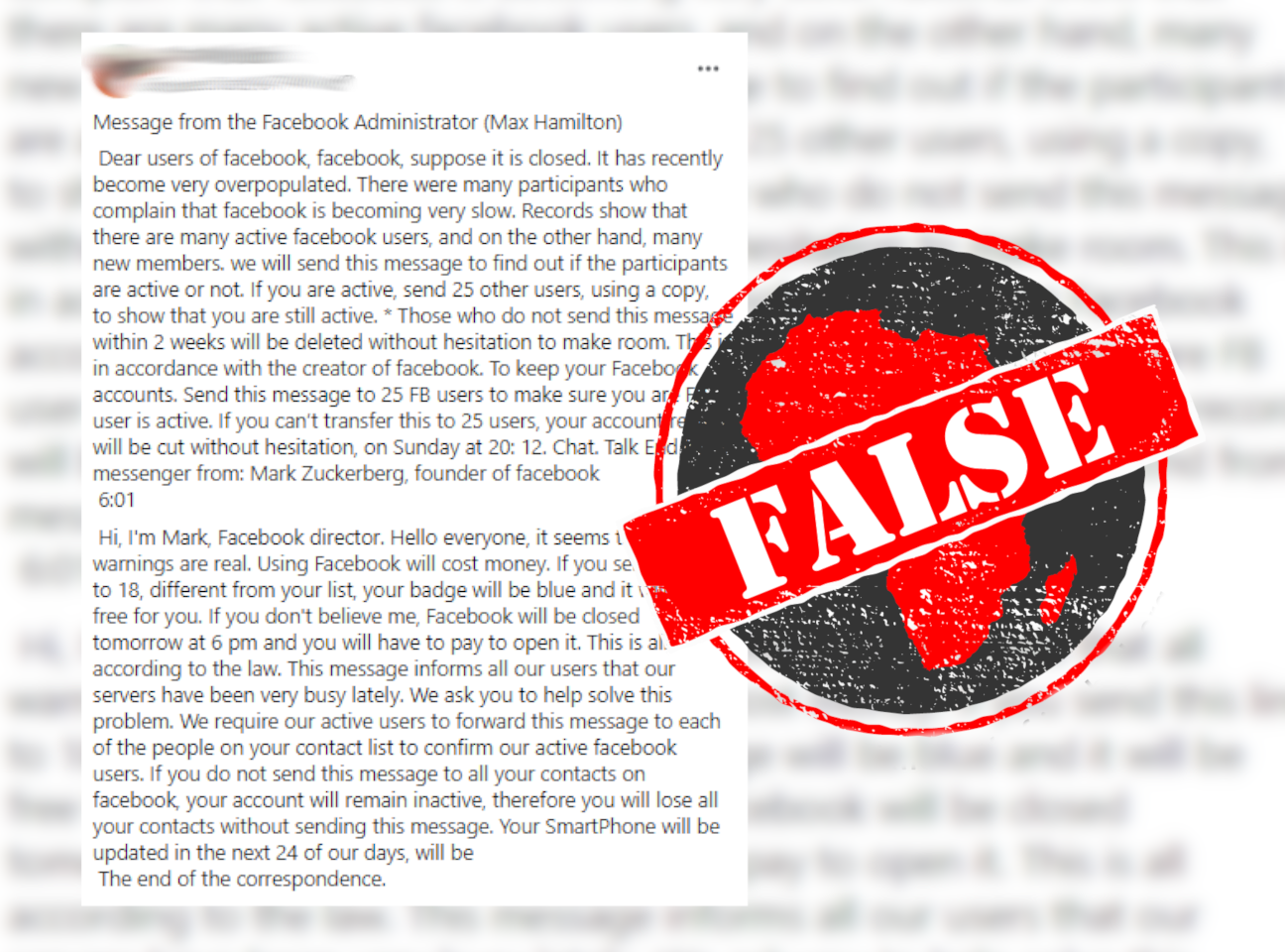Posts with a familiar message are spreading on Facebook, warning that the social media platform is about to “close down” as it has become “overpopulated”.
The posts claim to reproduce a “Message from the Facebook Administrator (Max Hamilton)” and tell users to forward the message to “25 other users, using a copy, to show that you are still active”. The message warns that inactive users will have their Facebook accounts deleted.
Included in the message is text allegedly directly from Facebook founder and chief executive Mark Zuckerberg, claiming that anyone who doesn’t share the message with others will have to start paying to be on the platform.
Asking users to share content with others is an example of engagement bait, and often a clue that a viral message is meant to mislead.
Another red flag is when posts are poorly written and confusing, as is the case here. A global company like Facebook is very unlikely to communicate like this. And there has been no official communication from Facebook about these changes.
But is there any truth to the rumour that Facebook is “overpopulated” and has to cull users?

Similar message debunked in 2009, still false
The message has been in circulation for years. A fact-checking organisation debunked similar rumours as far back as 2009.
There have been no reports in the intervening years of anyone being removed from Facebook because of not forwarding the message.
Africa Check also searched for a “Facebook administrator” by the name Max Hamiliton but could not find any trace of him. And Zuckerberg's Facebook page, where he posts frequently, has not hinted at anything in the viral message.
These changes have also not been reported on by any credible news source. By comparison, at the time of writing Facebook had just announced it was changing its company name to Meta. This made news headlines around the world.
Only advertisers charged
In the Facebook help center, the company also makes clear that it doesn't charge users. Instead advertisers pay to show ads on the Facebook family of apps and technologies.
“This helps us make Facebook available to everyone without charging people for access to it,” it says.
Ignore posts about Facebook not from official and verifiable sources.
Republish our content for free
For publishers: what to do if your post is rated false
A fact-checker has rated your Facebook or Instagram post as “false”, “altered”, “partly false” or “missing context”. This could have serious consequences. What do you do?
Click on our guide for the steps you should follow.
Publishers guideAfrica Check teams up with Facebook
Africa Check is a partner in Meta's third-party fact-checking programme to help stop the spread of false information on social media.
The content we rate as “false” will be downgraded on Facebook and Instagram. This means fewer people will see it.
You can also help identify false information on Facebook. This guide explains how.


Add new comment